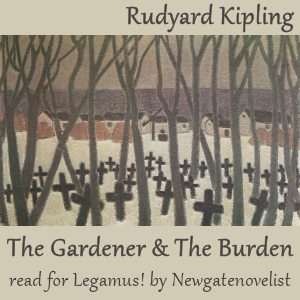Language: German/Deutsch, English
This is a collection for poetry and prose, fiction and non fiction in any language.

Language: German/Deutsch, English
This is a collection for poetry and prose, fiction and non fiction in any language.

(first published 1925)
Rudyard Kipling (1865 – 1936)
Language: English
Helen Turrell’s life has been one of respectability and duty, and she adopts and raises her illegitimate nephew upon her scapegrace brother’s death. When the young man’s promising future is cut short by the First World War, Helen travels to his grave for a final meeting.
(Summary by Newgatenovelist)
by various authors
Language: various
This is a collection for poetry and short prose in English and German.
(prima pubblicazione nella forma attuale nel 1937)
(first published in their present form in 1937)
Luigi Pirandello (1867-1936)
Language: Italian
This book contains 15 novels from the 15th book of “Novelle per un anno”, a collections of novels written by Luigi Pirandello over the years.
Novelle per un anno è una raccolta di 241 novelle scritte da Luigi Pirandello. Originariamente sono state pubblicate sul Corriere della Sera, successivamente ripubblicate in 15 raccolte. Inizialmente erano previste 24 raccolte contenenti 365 novelle, tuttavia la prematura morte dell’autore ha impedito il raggiungimento del traguardo. Postume sono state pubblicate altre novelle scritte dall’autore. Le raccolte sono state pubblicate tra il 1922 e il 1937. La quindicesima raccolta, edita nel 1937, contiene novelle pubblicate tra il 1898 ed il 1937. (Riassunto di Filippo Gioachin)
Sir Arthur Conan Doyle (1859-1930)
Language: English
And so, reader, farewell to Sherlock Holmes! These are positively the last stories. There is some disagreement as to their quality, and some claim that Conan Doyle was writing more experimentally, rather than to the conventional Sherlock Holmes formula. Not all the stories are narrated by the faithful Watson, and the stories are regarded as the darkest of the Holmes canon, with some unusual villains.
Part 2 of this audio book will available as soon as it is recorded.
Please note: Section 5, The Adventure of the Three Gables, includes language which, though normal for the time it was written, is now regarded as highly unacceptable racial slurs. Anyone who finds this too offensive may wish to omit this story. Indeed, any listener who would understandably prefer to avoid my poor attempt at American accents, may prefer not to listen to a number of these stories. Conan Doyle seemed to like American villains. … (summary by Ruth Golding)
Stefan Zweig (1881-1942)
Language: German
“Als der bekannte Romanschriftsteller R. frühmorgens wieder nach Wien zurückkehrte fand er in der Post einen Brief, der fremde Schriftzüge trug. Es waren etwa zwei Dutzend hastig beschriebene Seiten in fremder, unruhiger Frauenschrift. » Dir, der Du mich nie gekannt«, stand oben als Anruf. Seine Neugier war plötzlich wach. Und er begann zu lesen:
*
Mein Kind ist gestern gestorben – drei Tage und drei Nächte habe ich mit dem Tode um dies kleine, zarte Leben gerungen, vierzig Stunden bin ich, während die Grippe seinen armen, heißen Leib im Fieber schüttelte, an seinem Bette gesessen. Am dritten Abend bin ich zusammengebrochen. Meine Augen konnten nicht mehr, sie fielen zu, ohne daß ich es wußte. Drei Stunden oder vier war ich auf dem harten Sessel eingeschlafen, und indes hat der Tod ihn genommen.”…
(Auszug aus ‘Brief einer Unbekannten’)
by various authors
Language: Multilingual
Eight short works, poetry and prose in English, German and Polish.
(first published 1924)
Saki – Hector Hugh Munro ( 1870-1916)
Language: English
Eight amusing short pieces by Hector Hugh Munro (pen name Saki) who died in the First World War, collected and published posthumously in 1924.
The eponymous first story although humorous includes some indications of the horror of trench warfare. Though Munro was over the age of conscription he volunteered to fight. Rothay Reynolds in an appreciation of Munro written for an earlier posthumous collection quoted the officer in command of the 22nd Royal Fusiliers (Saki’s regiment):